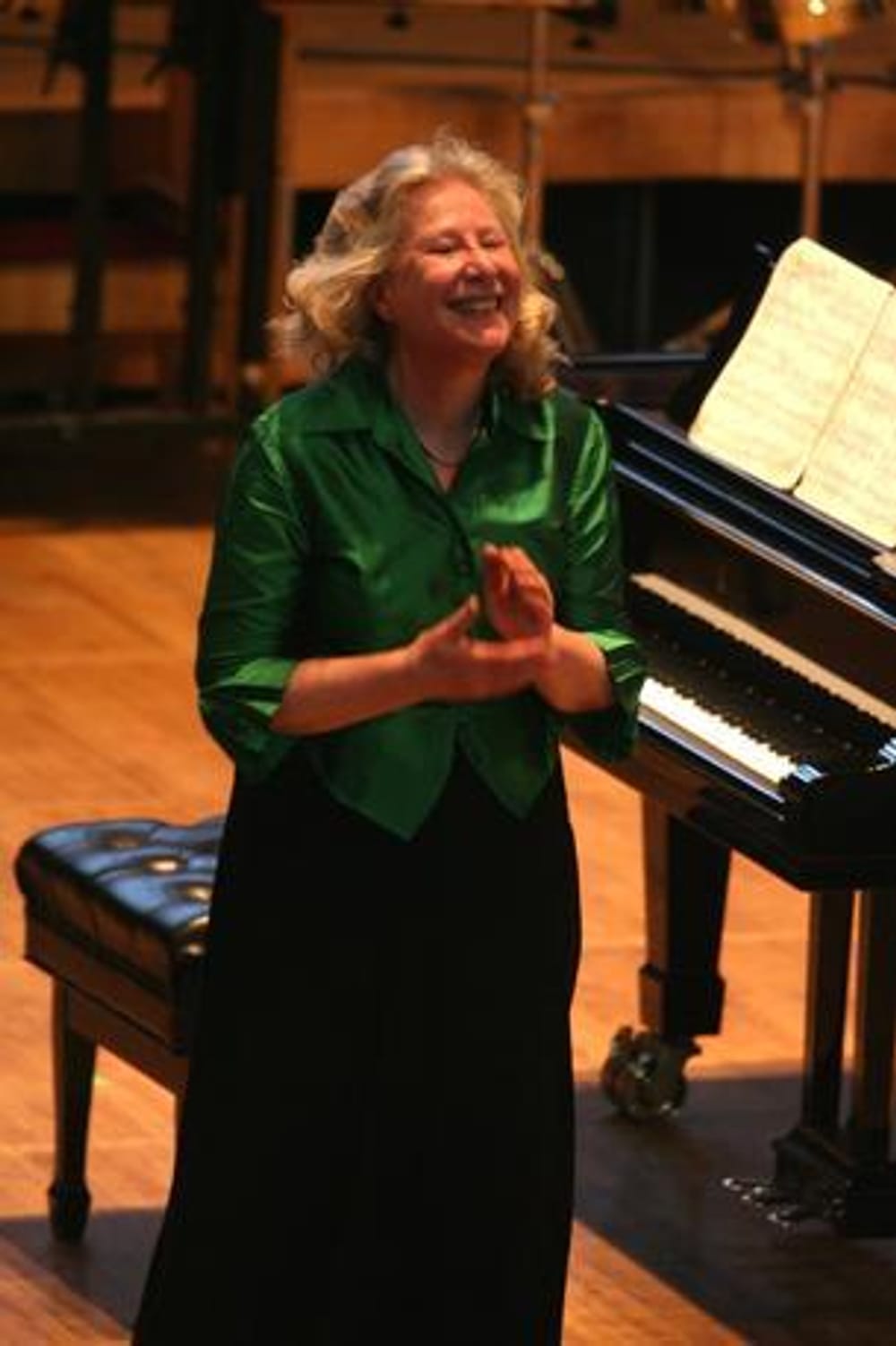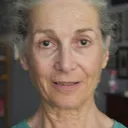Stay in the Loop
BSR publishes on a weekly schedule, with an email newsletter every Wednesday and Thursday morning. There’s no paywall, and subscribing is always free.
Ursula Oppens, seeker of melodies
Philadelphia Young Pianists' Academy presents Ursula Oppens

Ursula Oppens is not a flashy concert pianist. A quiet, poised, gracious, and unassuming performer, she comes onstage to play and starts making music the second she sits down. No fuss, no muss. At her concert sponsored by the Philadelphia Young Pianists’ Academy at the Curtis Institute, Ms. Oppens played a program in two sections, the first half consisting of 20th-century Russian composers.
No limits
After winning the Busoni International Piano competition in 1969, Oppens did not sign up for exhausting and lonely concert tours. Instead, she became a founding member of Speculum Musicae, a group of musicians dedicated to promoting contemporary music and commissioning new works.
Today, she is still dedicated to introducing works from artists of this century and the last. Oppens selects some of the more cerebral pieces and creates recital programs where edgier pieces are flanked by works more familiar to classical concertgoers. The familiar works range from Beethoven’s Hammerklavier sonata to Debussy’s En blanc et noir, but the unfamiliar works have no limit, technically or musically. Oppens is dedicated to learning some of the most formidable pieces in the modern repertoire and making sure those pieces are heard in live performance.
In performing Igor Stravinsky’s Piano Sonata, Oppens proved that carrying a legato melody above a percussively modern texture can be done mostly with the fingers. She used only the lightest pedal to carry the long phrases she teased out of the composer’s heavy texture.
She then relaxed into the most melodious of the selections: five Etudes Tableaux by Sergei Rachmaninov. Oppens dared a percussive touch on the dreamy C major and sank her fingers into glorious voicing of chords in the G minor. She rounded off the group with an untrammelled and brisk rendition of the E-flat minor. She completed the first half of the program by playing the formidably difficult Sonata No. 2 in G-Sharp Minor by Alexander Scriabin.
Playing the unplayable
After intermission, Oppens brought out scores for the second half, briefly introducing each piece. I borrowed those scores from the Parkway Central Branch of the Philadelphia Free Library’s excellent music collection. All I can say is, better not try these at home. Elliott Carter’s Two Diversions were so far out and unsingable that they were hard to listen to, but for Winging It, a notation John Corigliano published of his own improvisations, Ms. Oppens gave an expressive, melodic reading with improvisatory freshness.
To appreciate the program’s final selection, Two Canons for Ursula, it helps to know that its composer, Conlan Nancarrow, was one of America’s most iconoclastic musicians. Born in Texarkana, Arkansas, in 1912, Nancarrow refused to fit into any box. After some adventures fighting fascists in Spain in the 1930s, he no longer fit into American political boxes. He emigrated to Mexico and created compositions so rhythmically difficult and complex he could not find pianists capable of playing them. He finally bought a hole punch for player piano and composed directly onto piano rolls. The recordings of Nancarrow’s works for player piano are jazzy and dizzyingly percussive.
Nancarrow composed Two Canons for Ursula in 1988 for a commission from Oppens. Both canons are nearly exact: that is, they have voices that mirror each other, but are written so the hands play in differing tempos, a nearly impossible task. Oppens made it work, having practiced making each hand independently, as if they were dueling.
For her championing of modern music, we owe Oppens a great debt. Future generations may judge the value of the best and brightest of the moderns, but if the compositions are not played when they are new, they will have no chance to compete for a place in the musical canon of the future.
What, When, Where
Ursula Oppens, piano recital. Stravinsky, Piano Sonata; Rachmaninoff, Études Tableaux; Scriabin, Sonata Fantasy No. 2 in G minor; Carter, Two Diversions; Corigliano, Winging It; Nancarrow, Two Canons for Ursula. August 13, 2017, at the Curtis Institute of Music's Field Recital Hall, 1726 Locust Street, Philadelphia. (215) 893-7902 or pypa.info.
Sign up for our newsletter
All of the week's new articles, all in one place. Sign up for the free weekly BSR newsletters, and don't miss a conversation.

 Margaret Darby
Margaret Darby